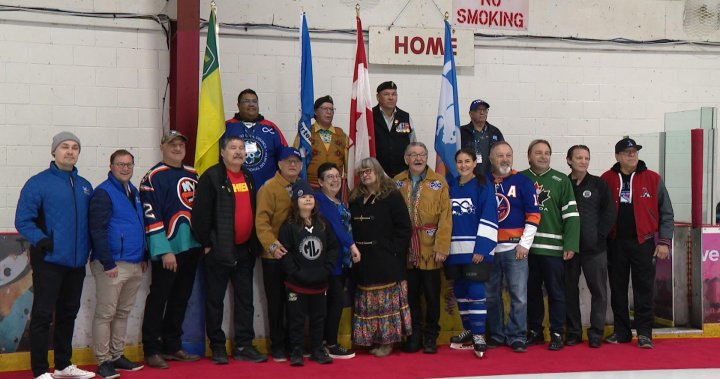The first annual Louis Riel Hockey Tournament and Floorball Festival is taking place at Saskatoon’s Rod Hamm and Harold Latrace arenas this weekend. The event, which runs from Friday to Sunday, features men’s and women’s teams, both Indigenous and non-Indigenous, coming together to compete in the spirit of reconciliation. Organized by Métis Nation Saskatchewan, the tournament aims to bring communities together through the power of sports. President of the Métis National Council, Cassidy Caron, emphasized the importance of using hockey as a tool to unite people from different backgrounds, highlighting its ability to positively impact youth.
Caron expressed her happiness at seeing the women’s division of the tournament being given equal importance to the men’s division, a rarity in the world of women’s hockey. She also mentioned her own participation in the tournament, noting the competitiveness and camaraderie that characterizes the event. Former NHL players, Bryan Trottier and Rich Pilon, also attended and spoke about the joy and inclusivity that hockey brings. Trottier highlighted the sense of community and shared experiences that come with playing and watching hockey, while Pilon emphasized the power of sports in bringing people together under one roof, regardless of their backgrounds.
Métis National Council president, Glen McCallum, stressed the unifying nature of sports and the role they play in fostering reconciliation. He acknowledged the divisiveness that can exist in Canada but saw the tournament as an opportunity to start conversations about what it means to be Canadian. McCallum praised the talent and passion on display at the event, emphasizing the beauty of seeing people from different backgrounds coming together through sports. The Louis Riel Cup, according to Trottier, represents the values of inclusivity and the joy of sport, serving as a symbol of unity and togetherness for all participants.
Overall, the Louis Riel Hockey Tournament and Floorball Festival serves as a platform for Indigenous and non-Indigenous communities to come together, celebrate the spirit of reconciliation, and showcase their skills on the ice. Through the power of sports, particularly hockey, participants and spectators alike are able to connect, build relationships, and bridge divides that may exist. The strong sense of camaraderie and competition at the event, as noted by Caron, Trottier, and Pilon, highlights the positive impact that sports can have on individuals and communities, fostering unity and understanding in a diverse society. As McCallum observed, events like this tournament have the potential to start important conversations about national identity and values, bringing people closer together in the spirit of reconciliation.













